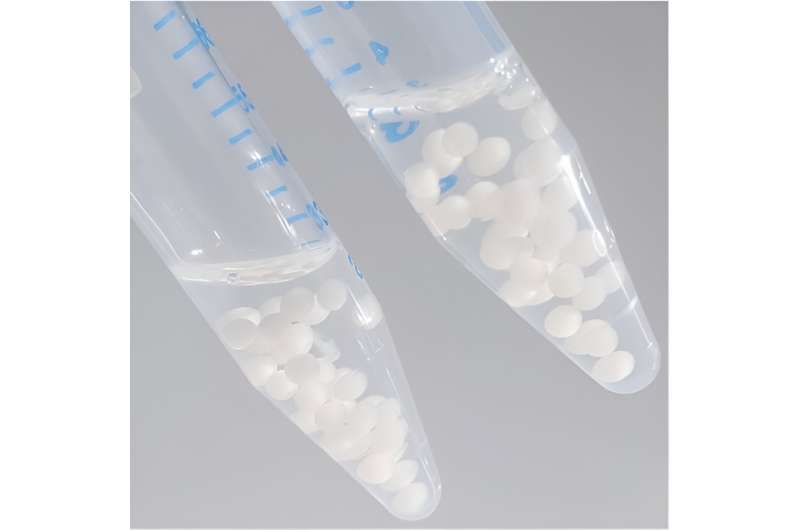This article has been reviewed according to Science X's editorial process and policies. Editors have highlighted the following attributes while ensuring the content's credibility:
fact-checked
peer-reviewed publication
trusted source
proofread
Plastic-eating bacteria turn waste into useful starting materials for other products

Mountains of used plastic bottles get thrown away every day, but microbes could potentially tackle this problem. Now, researchers report in ACS Central Science that they've developed a plastic-eating E. coli that can efficiently turn polyethylene terephthalate (PET) waste into adipic acid, which is used to make nylon materials, drugs and fragrances.
Previously, a team of researchers including Stephen Wallace engineered a strain of E. coli to transform the main component in old PET bottles, terephthalic acid, into something tastier and more valuable: the vanilla flavor compound vanillin. At the same time, other researchers engineered microbes to metabolize terephthalic acid into a variety of small molecules, including short acids.
So, Wallace and a new team from the University of Edinburgh wanted to expand E. coli's biosynthetic pathways to include the metabolism of terephthalic acid into adipic acid, a feedstock for many everyday products that's typically generated from fossil fuels using energy-intensive processes.
The team developed a new E. coli strain that produced enzymes that could transform terephthalic acid into compounds such as muconic acid and adipic acid. Then, to transform the muconic acid into adipic acid, they used a second type of E. coli, which produced hydrogen gas, and a palladium catalyst.
In experiments, the team found that attaching the engineered microbial cells to alginate hydrogel beads improved their efficiency, and up to 79% of the terephthalic acid was converted into adipic acid.
Using real-world samples of terephthalic acid from a discarded bottle and a coating taken from waste packaging labels, the engineered E. coli system efficiently produced adipic acid. In the future, the researchers say they will look for pathways to biosynthesize additional higher-value products.
More information: Plastic-eating bacteria turn waste into useful starting materials for other products, ACS Central Science (2023). DOI: 10.1021/acscentsci.3c00414 , pubs.acs.org/doi/abs/10.1021/acscentsci.3c00414
Journal information: ACS Central Science
Provided by American Chemical Society





















